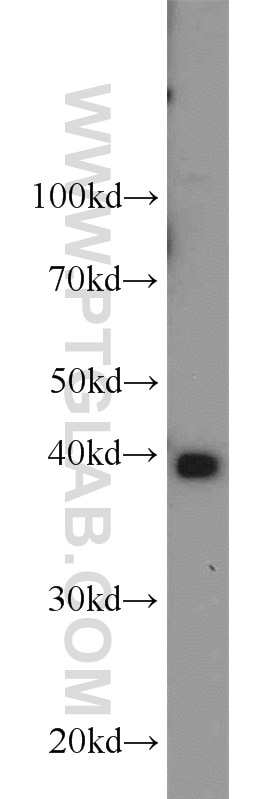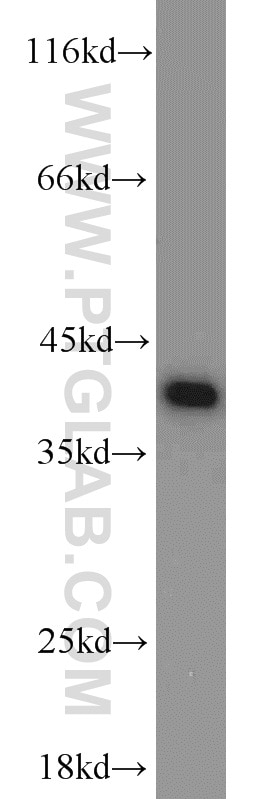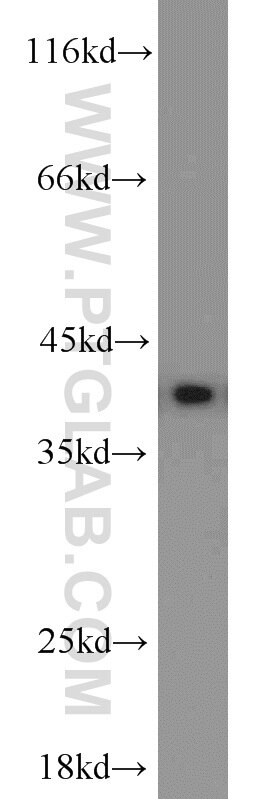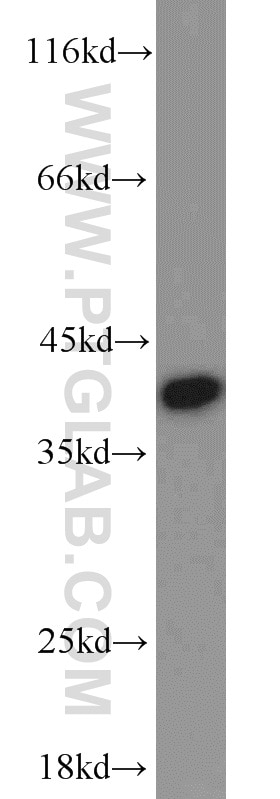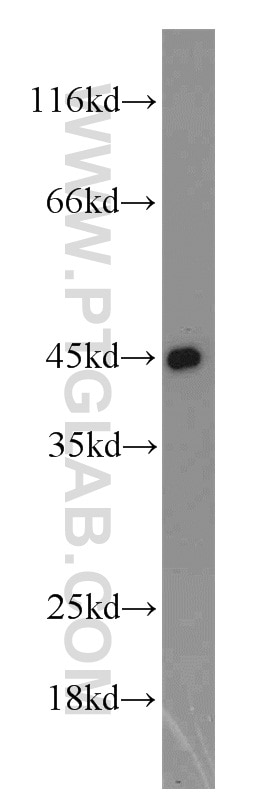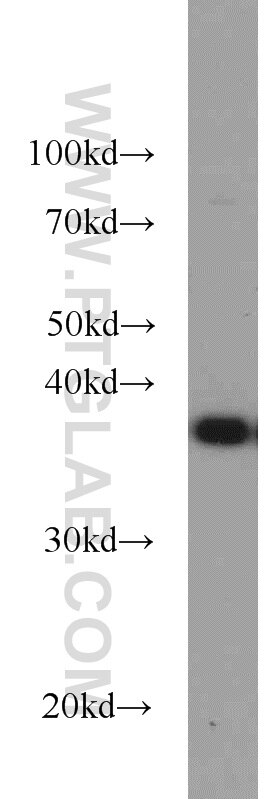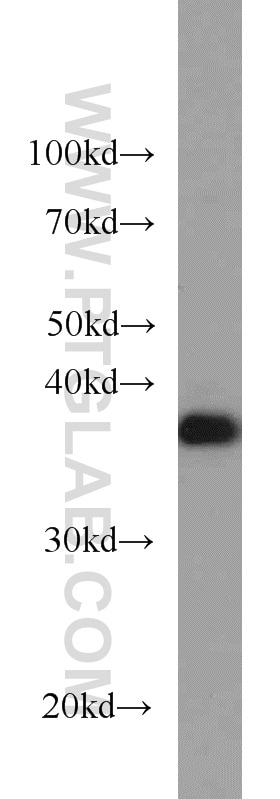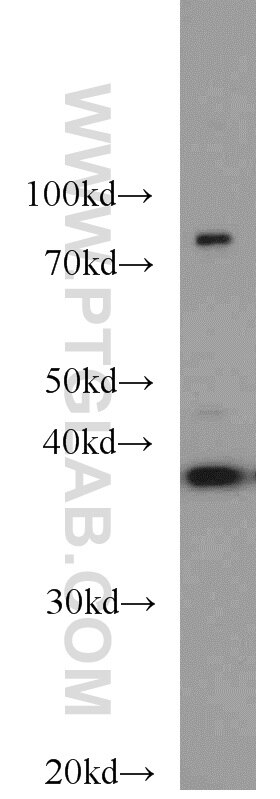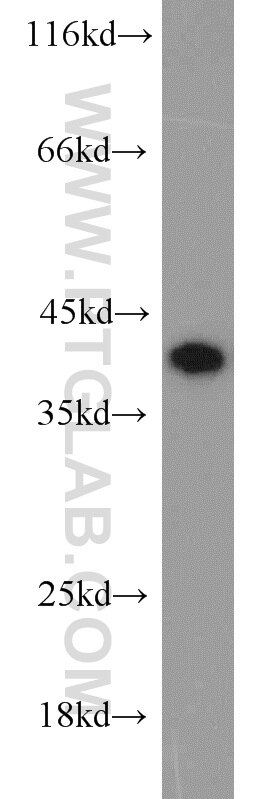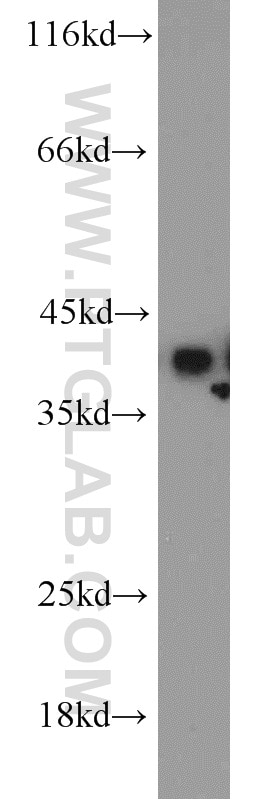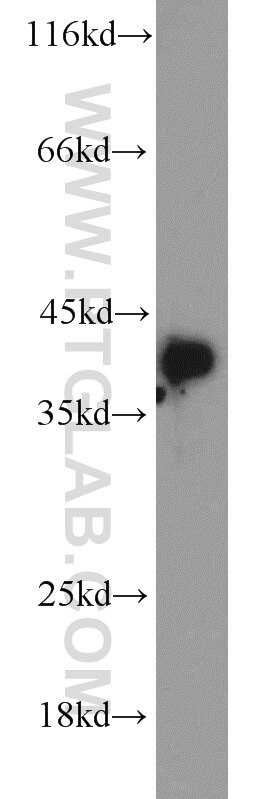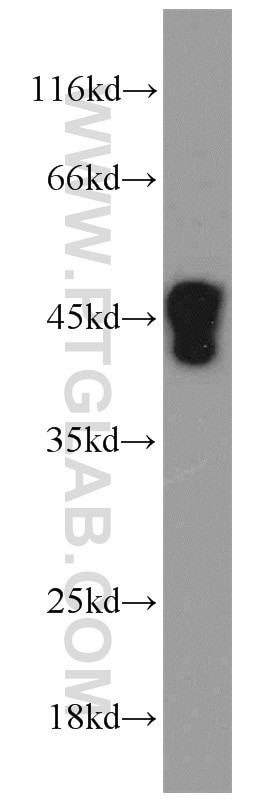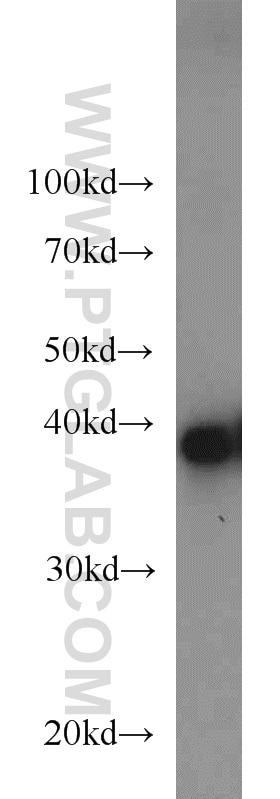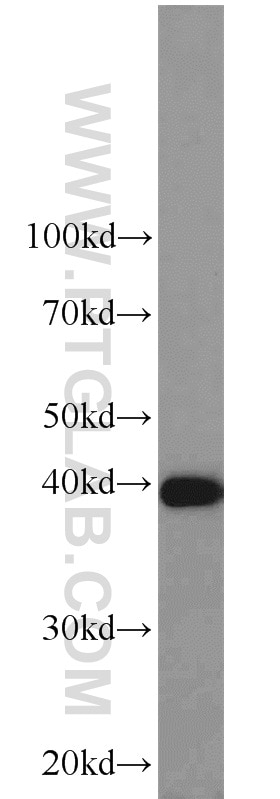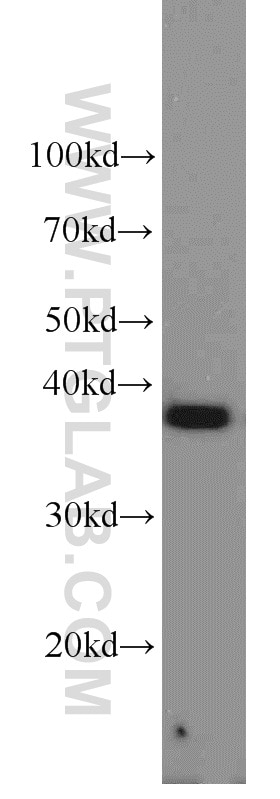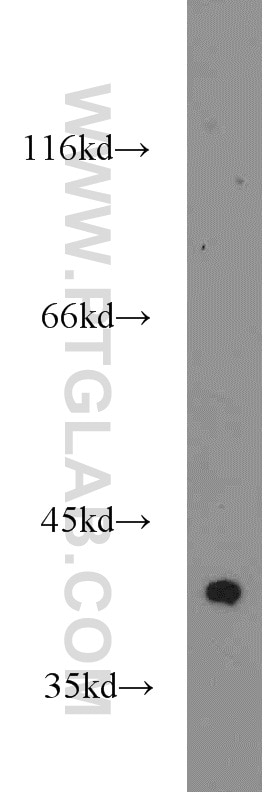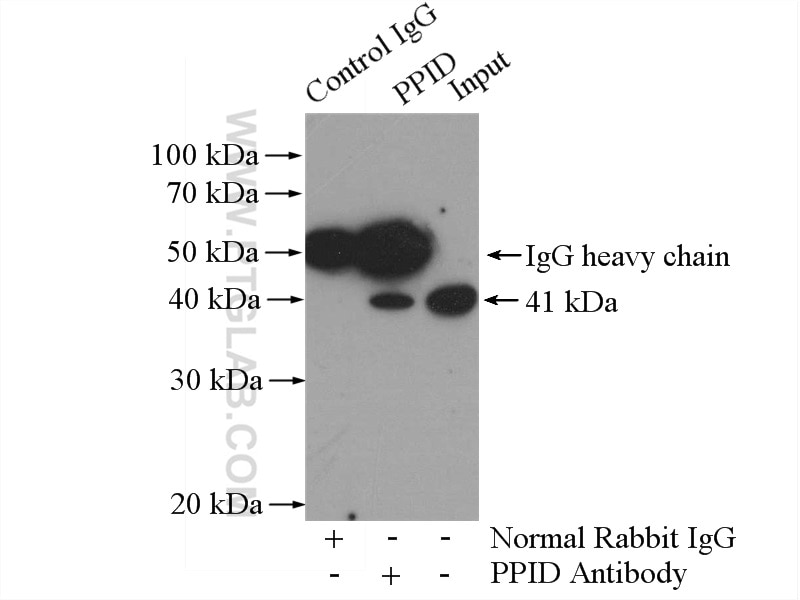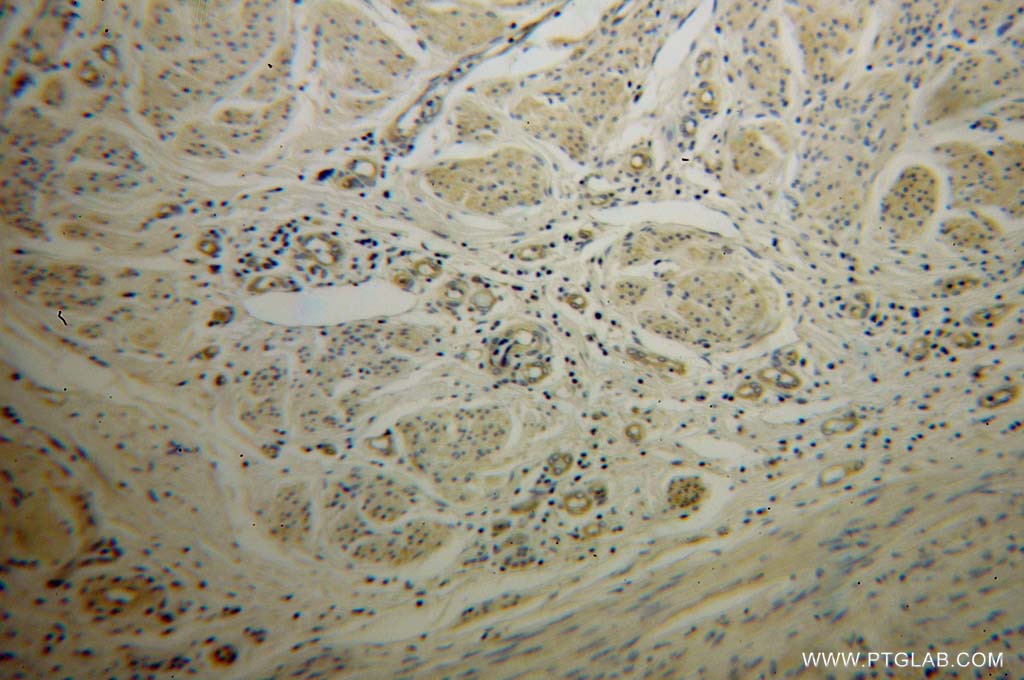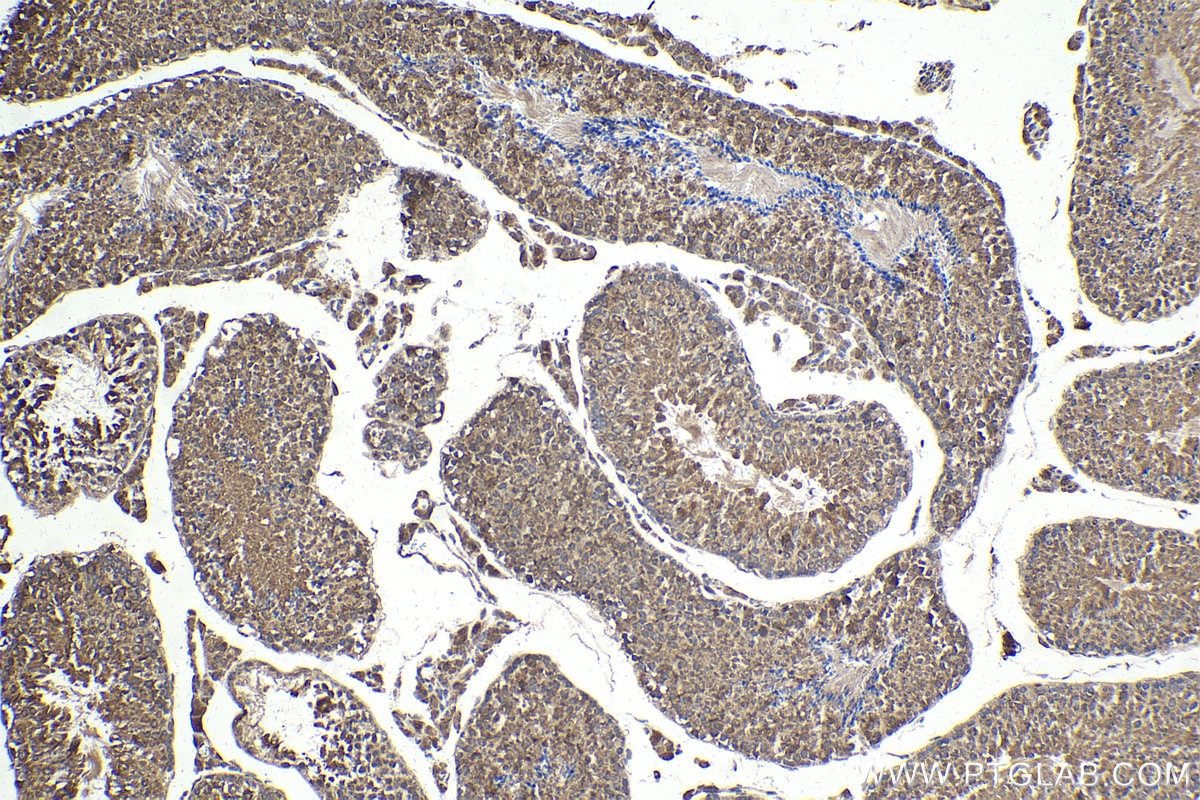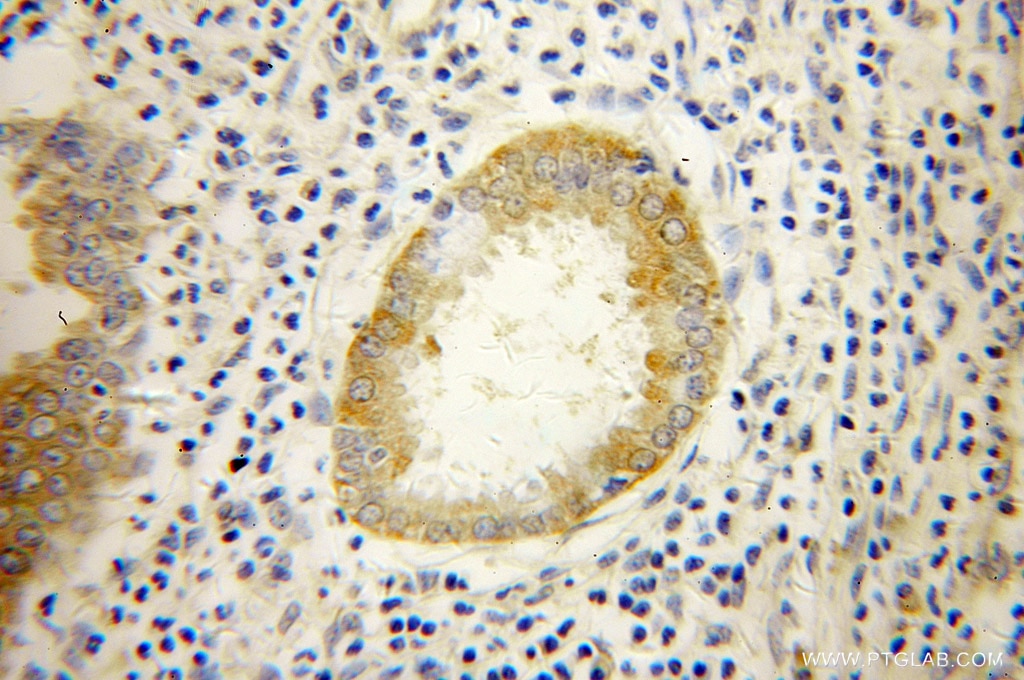PPID Polyklonaler Antikörper
PPID Polyklonal Antikörper für WB, IP, IHC, ELISA
Wirt / Isotyp
Kaninchen / IgG
Getestete Reaktivität
human, Maus, Ratte und mehr (1)
Anwendung
WB, IP, IF, IHC, CoIP, ELISA
Konjugation
Unkonjugiert
Kat-Nr. : 12716-1-AP
Synonyme
Galerie der Validierungsdaten
Geprüfte Anwendungen
| Erfolgreiche Detektion in WB | Maushirngewebe, A549-Zellen, humanes Hirngewebe, Jurkat-Zellen, MCF-7-Zellen, NIH/3T3-Zellen, Raji-Zellen, Rattenhirngewebe |
| Erfolgreiche IP | Maushirngewebe |
| Erfolgreiche Detektion in IHC | Maushodengewebe, humanes Zervixkarzinomgewebe Hinweis: Antigendemaskierung mit TE-Puffer pH 9,0 empfohlen. (*) Wahlweise kann die Antigendemaskierung auch mit Citratpuffer pH 6,0 erfolgen. |
Empfohlene Verdünnung
| Anwendung | Verdünnung |
|---|---|
| Western Blot (WB) | WB : 1:500-1:2000 |
| Immunpräzipitation (IP) | IP : 0.5-4.0 ug for 1.0-3.0 mg of total protein lysate |
| Immunhistochemie (IHC) | IHC : 1:250-1:1000 |
| It is recommended that this reagent should be titrated in each testing system to obtain optimal results. | |
| Sample-dependent, check data in validation data gallery | |
Veröffentlichte Anwendungen
| WB | See 7 publications below |
| IF | See 1 publications below |
| CoIP | See 2 publications below |
Produktinformation
12716-1-AP bindet in WB, IP, IF, IHC, CoIP, ELISA PPID und zeigt Reaktivität mit human, Maus, Ratten
| Getestete Reaktivität | human, Maus, Ratte |
| In Publikationen genannte Reaktivität | human, Maus, Ratte, Rind |
| Wirt / Isotyp | Kaninchen / IgG |
| Klonalität | Polyklonal |
| Typ | Antikörper |
| Immunogen | PPID fusion protein Ag3409 |
| Vollständiger Name | peptidylprolyl isomerase D |
| Berechnetes Molekulargewicht | 370 aa, 41 kDa |
| Beobachtetes Molekulargewicht | 38-41 kDa |
| GenBank-Zugangsnummer | BC030707 |
| Gene symbol | PPID |
| Gene ID (NCBI) | 5481 |
| Konjugation | Unkonjugiert |
| Form | Liquid |
| Reinigungsmethode | Antigen-Affinitätsreinigung |
| Lagerungspuffer | PBS mit 0.02% Natriumazid und 50% Glycerin pH 7.3. |
| Lagerungsbedingungen | Bei -20°C lagern. Nach dem Versand ein Jahr lang stabil Aliquotieren ist bei -20oC Lagerung nicht notwendig. 20ul Größen enthalten 0,1% BSA. |
Hintergrundinformationen
PPID(Peptidyl-prolyl cis-trans isomerase D) is also named CYP40, CYPD, and belongs to the cyclophilin-type PPIase family, which accelerates the folding of proteins. It catalyzes the cis-trans isomerization of proline imidic peptide bonds in oligopeptides. The inactivation of the Ppid gene rescued the disease phenotype of Col6a1 deficiency (PMID:19293339). This PPID antibody detected a strong band at an apparent molecular mass of 41 kDa and a weak band at 70 kDa due to crosslink (PMID: 33320090, 29097228).
Protokolle
| Produktspezifische Protokolle | |
|---|---|
| WB protocol for PPID antibody 12716-1-AP | Protokoll herunterladen |
| IHC protocol for PPID antibody 12716-1-AP | Protokoll herunterladen |
| IP protocol for PPID antibody 12716-1-AP | Protokoll herunterladen |
| Standard-Protokolle | |
|---|---|
| Klicken Sie hier, um unsere Standardprotokolle anzuzeigen |
Publikationen
| Species | Application | Title |
|---|---|---|
Cardiovasc Toxicol PM2.5-Induced Programmed Myocardial Cell Death via mPTP Opening Results in Deteriorated Cardiac Function in HFpEF Mice. | ||
Mol Med Rep Downregulation of microRNA‑199a‑5p attenuates hypoxia/reoxygenation‑induced cytotoxicity in cardiomyocytes by targeting the HIF‑1α‑GSK3β‑mPTP axis. | ||
Eur J Pharmacol A novel ent-kaurane diterpenoid analog, DN3, selectively kills human gastric cancer cells via acting directly on mitochondria. | ||
Dev Cell Deregulation of ER-mitochondria contact formation and mitochondrial calcium homeostasis mediated by VDAC in fragile X syndrome | ||
Bone Res Sensory nerves directly promote osteoclastogenesis by secreting peptidyl-prolyl cis-trans isomerase D (Cyp40) | ||
J Hazard Mater T-2 toxin induces mitochondrial dysfunction in chondrocytes via the p53-cyclophilin D pathway |
